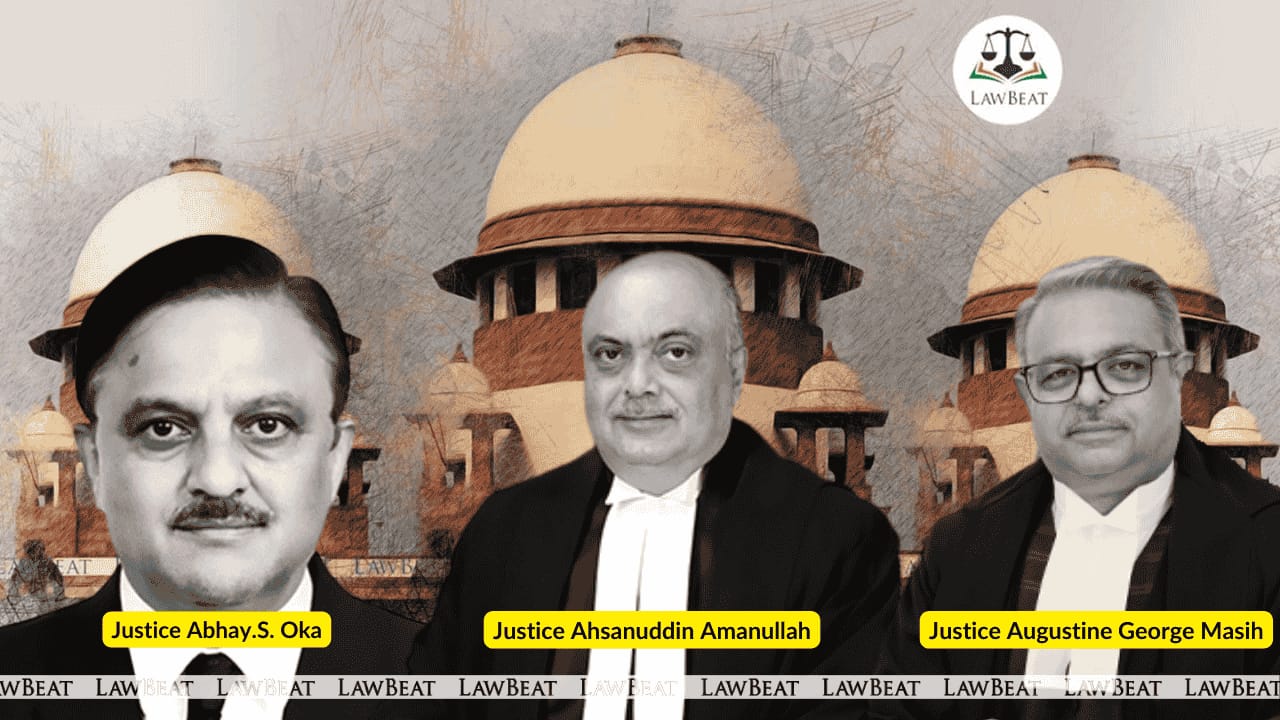No Compassionate Appointment Without Policy, Instruction or Rule: Supreme Court

Court further clarified that a compassionate appointment in any case be subject to the claimant fulfilling the requirements as laid down in the policy, instructions, or rules
The Supreme Court on November 13, 2024, said that compassionate appointment cannot be claimed as a vested right for appointment, as it is not a condition of service of an employee who dies in harness, which must be given to the dependent without any kind of scrutiny or undertaking a process of selection.
"It is an appointment which is given on proper and strict scrutiny of the various parameters as laid down with an intention to help a family out of a sudden pecuniary financial destitution to help it get out of the emerging urgent situation where the sole bread earner has expired, leaving them helpless and maybe penniless," a bench of Justices Abhay S Oka, Ahsanuddin Amanullah and Augustine George Masih said.
The court further explained that compassionate appointment is, therefore, provided to bail out a family of the deceased employee facing extreme financial difficulty and but for the employment, the family will not be able to meet the crisis.
"This shall in any case be subject to the claimant fulfilling the requirements as laid down in the policy, instructions, or rules for such a compassionate appointment," the bench said.
The bench also said that in a case where there is no policy, instruction, or rule providing for an appointment on compassionate grounds, such an appointment cannot be granted.
"The very basis and the rationale, wherever such policies are framed for compassionate appointment is with an object to grant relief to a family in distress and facing destitution, and thus an exception is culled out to the general rule in favour of the family of the deceased employee. This is resorted to by taking into consideration the services rendered by such employee and the consequent legitimate legal expectations apart from the sudden change in status and affairs of the family because of the unexpected turn of events, i.e. the loss of the sole bread earner," the bench said.
The court rejected a plea by one Tinku for a direction to the Haryana government to grant compassionate appointment to him in lieu of death of his father, a police constable while on duty on November 22, 1997. Since Tinku was seven years of age at that time, he made the claim to the post after 11 years, though an intimation in this regard was made at the time of death.
The court, however, pointed out that a period of three years as had been laid down from the date of death of the employee for putting forth a claim by a dependant, which, includes attainment of majority as per the 1999 policy instructions issued by the Government of Haryana, could not be said to be in any case unjustified or illogical, especially when compassionate appointment was not a vested right.
It was the petitioner's claim that there had been a violation of the right of equality relating to consideration for appointment under the ex-gratia policy, as in similar factual matters the benefit of appointment on compassionate grounds had been granted. His counsel asserted that since the petitioner was similarly placed, he should be granted the same benefit.
However, the bench pointed out that in those matters, the age of attainment of majority was prior to the coming into force of 1999 instructions.
The court also pointed out that the very idea of equality enshrined in Article 14 is a concept clothed in positivity based on law.
"It can be invoked to enforce a claim having sanctity of law. No direction can, therefore, be issued mandating the State to perpetuate any illegality or irregularity committed in favour of a person, an individual, or even a group of individuals which is contrary to the policy or instructions applicable," the bench said.
Similarly, the court said that passing of an illegal order wrongfully conferring some right or claim on someone does not entitle a similar claim to be put forth before a court nor would a court be bound to accept such a plea. The court will not compel the authority to repeat that illegality over again, it asserted.
"If such claims are entertained and directions issued, that would not only be against the tenets of the justice but would negate its ethos resulting in the law being a causality culminating in anarchy and lawlessness. The court cannot ignore the law, nor can it overlook the same to confer a right or a claim that does not have legal sanction. Equity cannot be extended, and that too negative to confer a benefit or advantage without legal basis or justification," the bench said.
In the case at hand, the bench, however, said that the widow of the deceased would be entitled to seek a lump sum ex gratia payment under the rules and the decision of the state government with regard to pending cases of compassionate appointment.
"It would thus be just and reasonable that one opportunity is granted to the widow of the deceased government employee, Jai Prakash and the mother of the appellant, to make a representation for exercising her option for the grant of lump sum ex-gratia compensation. We permit her to do so," the bench said.
On submission of the representation, the court said, it should be considered by the competent authority and a decision be taken thereon within a period of six weeks.
Case Title: Tinku Vs State of Haryana & Ors
